Vietnam is definitely an unusual place to visit, to say the least.
Enriched with culture and history, Vietnam can be easily be described as the most exotic place in all of Indochina. Most of you probably know about this country thanks to history.
As you most of you know, Vietnam was once a battleground for war, a war that the US fought in.
But, history has left the country with some pretty mesmerizing monuments and sites. That’s not all Vietnam has to offer to the travelers of the world, however.
In this article, we are going to talk about the most important things to know about the country. You could say this is some sort of travel guide for 2024, as we will touch on some topical things as well.
Contents
1. Money
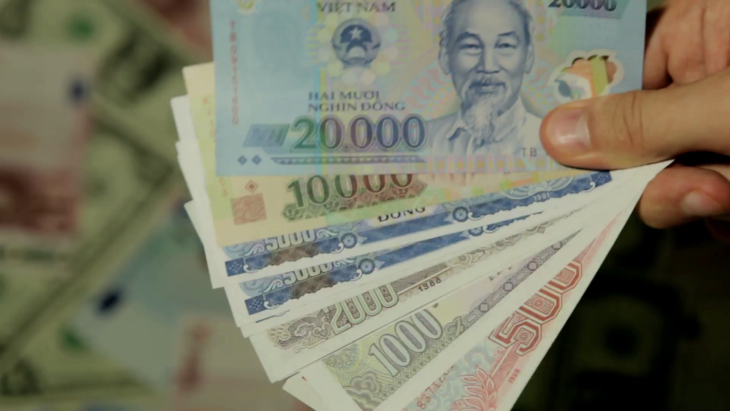
Source: therahnuma
Vietnam has a different currency to that of the US, Europe, and even the rest of the Asian countries. The main currency is the Dong (VND), and it is the currency you will mostly be doing transactions.
Although the US dollar is quite popular in the country, the most basic of things such as shopping for groceries and paying for public transportation is done with the Vietnamese Dong.
The US dollar can be used to pay for your hotel accommodation and certain services within the country. One US dollar is the equivalent of 23,100 VND! This makes the Dong a very weak currency, and that means the country is very affordable for traveling.
When exchanging EUR, GBP or USD to VND, its best that you do it in the country itself. A weak currency means that you will get lousy terms if you exchange it in your own country.
2. Gadgets and Equipment
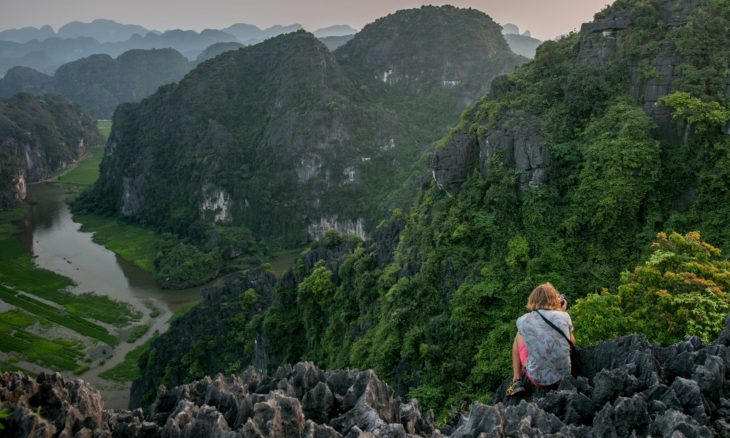
Source: tortugabackpacks
Like any other travel you’ll be undergoing, the most basic of gadgets and equipment will definitely help you get over the line.
Wi-Fi is relatively sound in almost every establishment. Hotels, restaurants, and coffee shops provide the most basic of Wi-Fi that every customer can connect to the internet.
But, even with that, it is still recommended that you purchase a SIM card during your travels in Vietnam. They cost close to nothing and will provide you basic internet access when visiting monuments, historic sites, etc.
As for gadgets and equipment, a power bank is an absolute necessity. If you’re traveling solo, make sure to get headphones as people tend to be noisy on public transport.
3. Visa
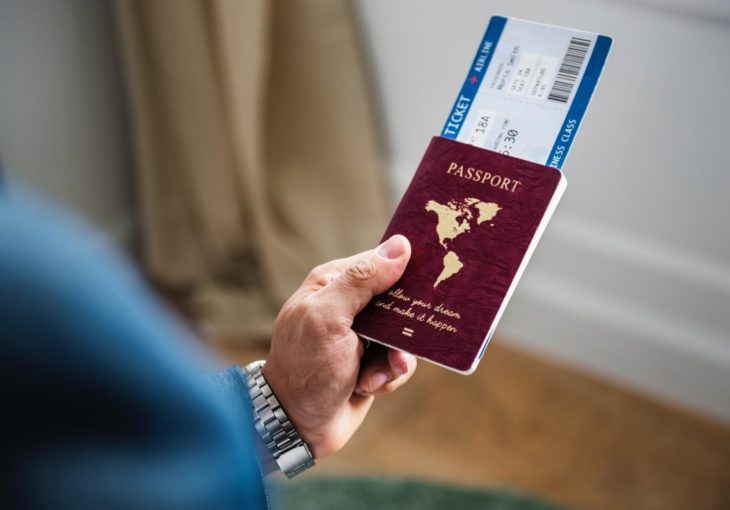
Source: cekindo
Obtaining a Visa before your holiday in Vietnam can be easily done by simply going online. Previously, you had to wait a long line at the airport when arriving in the country to get one.
Nowadays, this simple process can be done online. When it comes to obtaining a Visa, you have multiple options to choose from, of which four are the most popular.
Those include the following:
• One month single entry
• One month multiple entries
• Three months single entry
• And three months multiple entries
Each one speaks for itself, but there is another thing to mention here.
Namely, the Vietnamese government allows specific nationalities to be exempt from having to obtain a Visa. These nationalities can stay in the country for a very specific time frame and must leave afterward.
• A legal stay of 14 days for Brunei and Myanmar
• A legal stay of 15 days for specific European member countries
• A legal stay of 21 days for the Philippines
• A legal stay of 30 days for Cambodians, Indonesians, Lao (Laos), Malay, Thai, and Singaporeans
• And a legal stay of up to 90 days for Chileans
For more information about specific nationalities, and a place where you can obtain the Visa itself, make sure to visit e-visa-vietnam.com.
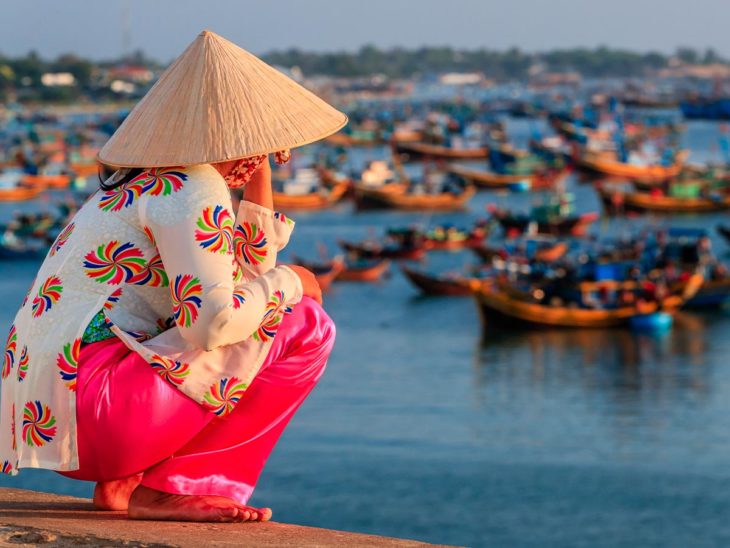
Source: flightcentreexclusives
Vietnam is, geographically, quite lengthy, so the best way to go from the north to the south is by plane. While this might not be the most feasible option, it is the most convenient one.
You can always go from the north to the south by taxi or bus, but it will be quite a lengthy ride. Furthermore, as with any similar country in the region, many fake taxis will only try and charge you more than what it costs for a ride. Furthermore, the rush hour in Vietnam can cause a lot of traffic jams, so have that in mind.
A very cheap and safe alternative to all this is traveling by train. People travel the most using this means of transportation, and this is yet another recommended option for you.
Surprisingly, people also travel by boat from one region to another. Seeing that most of the country lies in the South China Sea and the Gulf of Thailand, a very convenient way to travel both the seaside and various islands is by boat. You can even arrange for a cruise, which is a great way to discover the various islands off the coast of Vietnam.
5. Is Vietnam Safe?
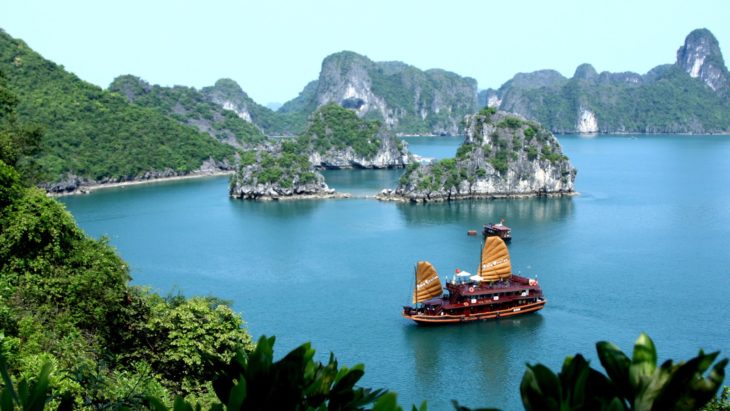
Source: humannationalityvn
Now, the million-dollar question, is Vietnam a safe play for foreign people? Yes, the answer is absolute yes.
The country can be categorized as a relatively safe place to live and travel. Although, much like other countries in the region, backpack travelers have reported instances of pickpocketing. This is why you should always keep your passport and ID in a safe place while carrying a copy of both documents while out traveling.
Never show off your wallet, camera, and jewelry while in public, as you can definitely attract unwanted attention.
Due to the way things are, it is heavily advised that you avoid traveling at night, and only do it via train if you must.
If you’re traveling with kids, do know that most of the public beaches in Vietnam have lifeguards on duty. But, you should only take this with a pinch of salt and always monitor your children.
Also, whenever you see a beggar, especially a child, restrain from giving it any money. Furthermore, if visiting Vietnamese villages, never give the children candy or any other type of sweets.
